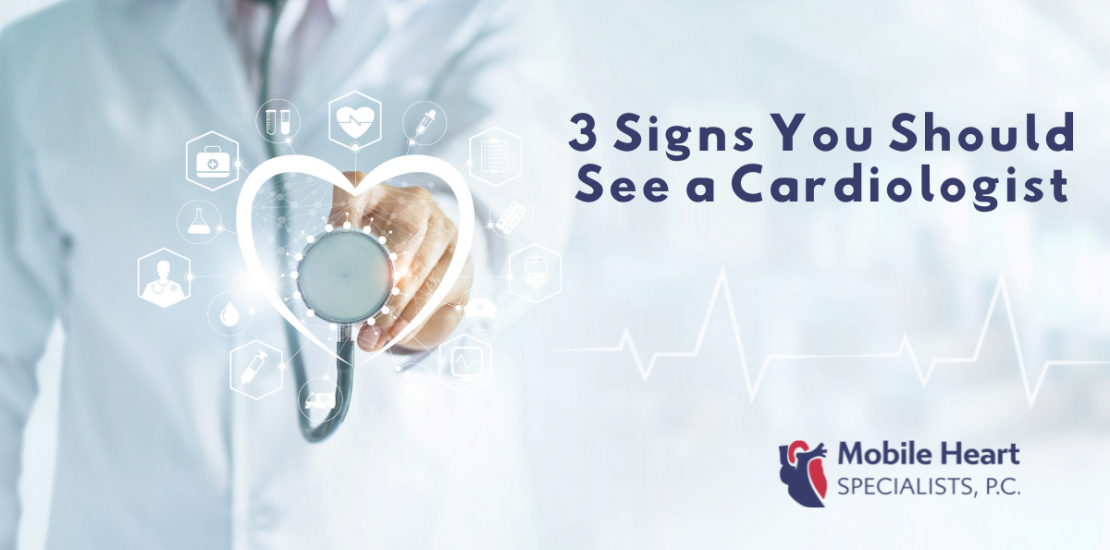- June 11, 2021
- Posted by: sabrina@salexanderconsulting.com
- Category: Uncategorized


You may get a yearly checkup, but when should you incorporate a specialist into your regular checkup schedule? Specifically, when should you see a cardiologist?
A cardiologist is a doctor who specializes in treating conditions of the heart and blood vessels. The heart is a muscle responsible for pumping blood and nutrients to all organs of your body – so it plays a pretty important role in your overall health!
There are many reasons why you may need to see a cardiologist, so we started with just three reasons why – plus two major reasons you absolutely cannot ignore.
You have high blood pressure.
Nearly half of all Americans have high blood pressure – and many don’t even know it. High blood pressure, also known as HBP or hypertension, is when the force of blood flowing through your blood vessels is consistently high.
The best way to know about your risk for high blood pressure is to consistently get your numbers checked. An average blood pressure reading is 120 / 80 or less. When left untreated, high blood pressure can lead to heart attack, stroke, and other health issues.
You have diabetes.
Diabetes and heart disease often go hand in hand. Individuals with diabetes are twice as likely to have heart disease or a stroke than someone without diabetes – and it occurs in diabetes patients at a younger age.
Over time, high blood sugar can damage your heart and increase your risk for heart failure. Heart failure is when the heart can’t pump blood well and can lead to swelling in the legs and fluid buildup in the lungs, making it harder to breathe.
You have a history of high cholesterol.
High cholesterol usually has no signs or symptoms, which is why it’s important to get your numbers checked a minimum of every five years. The two types of cholesterol are: LDL cholesterol, which is bad, and HDL, which is good. Too much of the bad – and not enough good – can cause build up in your arteries.
When cholesterol begins to build up in your arteries, the passages narrow and become less flexible – a condition known as atherosclerosis. If a blood clot forms it can block an already narrowed artery and cause a heart attack.
Two Heart Signs You Can’t Ignore
Here are two more signs and very important reasons to see a cardiologist right away.
You begin to experience chest pain.
OR
You have a family history of heart disease.
If you have any of these signs or risks, it may be time to see a cardiologist. Mobile Heart Specialists offers complete cardiac services with five specialists. Call us today or book an appointment with one of our specialists.
Resources:
American Heart Association – The Facts About High Blood Pressure
American Heart Association – What is Cholesterol?
CDC – Diabetes and Your Heart
